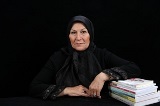Predicting alexithymia in female adolescents based on early maladaptive schemas and parental mind theory
Keywords:
Alexithymia, Maladaptive Schemas, Parental Mind TheoryAbstract
Aim: This study aimed to investigate alexithymia's prediction in adolescent girls based on early maladaptive schemas and parental mind theory. Method: This was a descriptive correlational study and the statistical population was the secondary high school girls in Tehran in the academic year 2018-2019, which using random multi-stage cluster sampling method first among the secondary schools for girls in regions 5, 9, 12, and 21 of Tehran was selected, and three high schools were selected from each region and 300 students were selected to participate in the research based on the Cochran's formula, maintaining the principle of confidentiality and consent. Toronto Emotional Dysfunction Questionnaire (1994), Young's Early Maladaptive Schema Short Questionnaire (1998), and Baron-Cohen Mind Reading Test (2001) were used to collect data. Pearson correlation coefficient and stepwise regression analysis were used to analyze the data. Results: The results showed that there was a positive and significant relationship between the scores of the components of the initial maladaptive schemas of the parents with the alexithymia of the girls (P = 0.01); There is also a negative and significant relationship between the score of parent's mind theory and alexithymia (P = 0.01). Also, stepwise regression coefficients showed that the standard schemas such as stubbornness (β = 0.24, P = 0.001), self-disciplinary (β = 0.33, P = 0.001), and abusive (β = 0.41, P = 0.001), Mind theory (β = 0.43, P = 0.001), Release (β = 0.48, P = 0.001), Emotional inhibition (β = 0.50, P= 0.001), imperfection and shame (β = 0.52, P = 0.001), and entitlement (β = 0.53, P = 0.001) were able to predict alexithymia. Conclusion: Maladaptive schemas affect female students' alexithymia; therefore, it is necessary to pay attention to maladaptive schemas and mind theory in parents in correcting and treating people with maladaptive schemas and alexithymia.
Downloads
Downloads
Published
Issue
Section
License
Copyright (c) 2020 Mojghan Ghanbar Heydary , Mohammad Ghamari (Author)

This work is licensed under a Creative Commons Attribution-NonCommercial 4.0 International License.


















